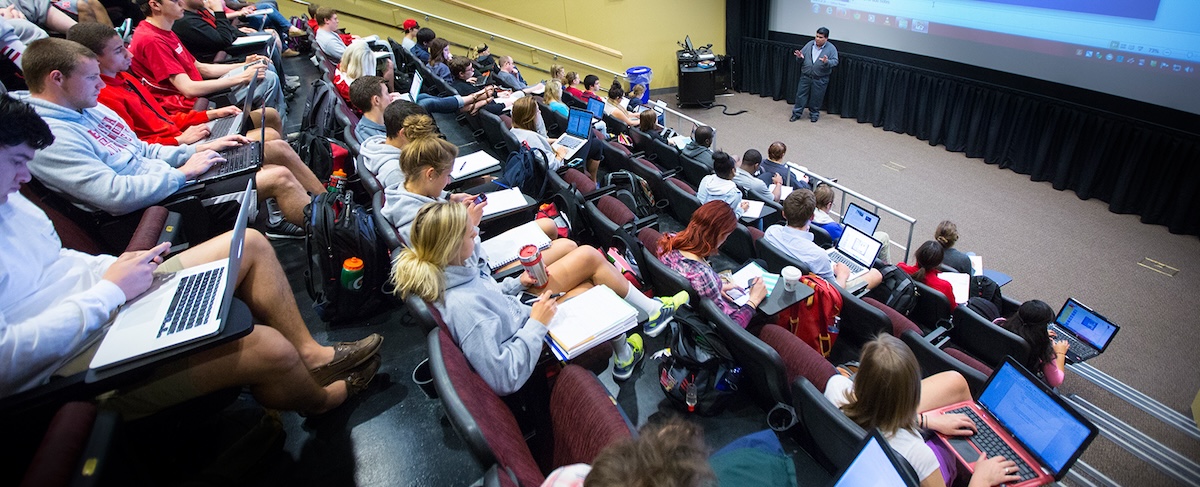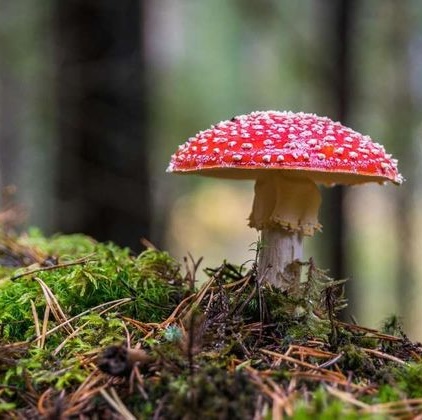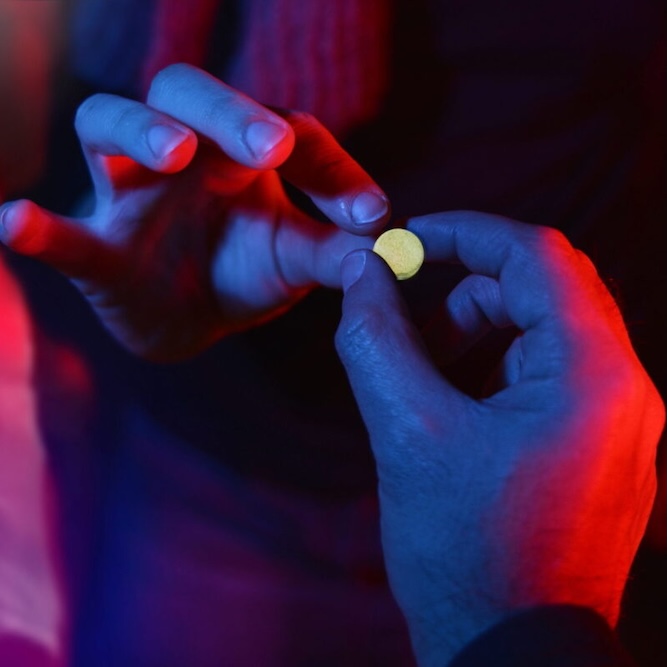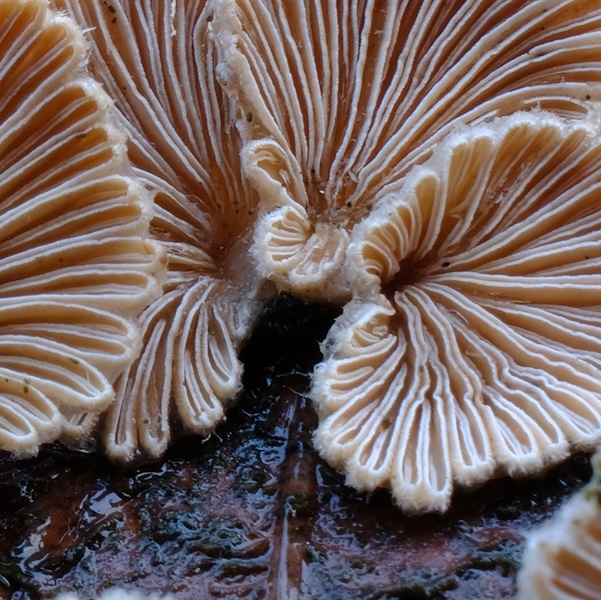So, let’s start by talking about the landscape for college students interested in the field of psychedelics. It’s a rapidly evolving space, but there’s still a lot of ground to cover. Take, for instance, Marissa Brinkman. She was an undergraduate at Florida International University, and like many students, she’d had her own profound psychedelic experiences. What she didn’t know at the time was that a legitimate career in this field was even an option.
A student's awakening to psychedelic sciences

But that changed the moment she enrolled in a course on the science of psychedelics. This wasn’t just your typical college class—it went deep into how psychedelics impact the brain and their broader influence on American culture. The course even brought in guest speakers from a range of backgrounds, from chemists to lawyers. For Marissa, this was eye-opening. She says, “It really showed me that this is a legitimate profession. I know this is something I want to do.”
From student to psychedelic advocate
Fast forward, she’s now a graduate with degrees in public administration and sustainability. Her aim? To legally grow mushrooms and advocate for psychedelics. And she’s not stopping there—Marissa is also the Director of Community Engagement for the Intercollegiate Psychedelics Network (IPN). This is a student-led initiative providing online talks, virtual conferences, workshops on grad school opportunities, and even a job board for students who want to break into the field.
The slow academic adoption of psychedelics
Now, what’s interesting here is that the IPN is stepping in to fill a gap. While we’ve seen universities across the U.S. introduce courses, and even degrees, related to cannabis, psychedelics haven’t quite reached that level of widespread academic acceptance yet. But it’s moving in that direction. According to Victor Pablo Acero, IPN’s Director of Internal Operations, they’re making it clear to students: “You can have a career here; there’s support; you can do something meaningful in this space.”
Emerging psychedelic research centers
We’ve started to see the emergence of psychedelic research centers at major institutions. Johns Hopkins kicked things off in 2019 with their Center for Psychedelic and Consciousness Research. NYU, the University of Michigan, and Ohio State University have since followed suit. Even Columbia and the University of Pennsylvania are developing programs aimed at educating nurses and social workers about psychedelics. And then there’s the University of Wisconsin, Madison, which launched a Master of Science in Pharmaceutical Sciences with a focus on Psychoactive Pharmaceutical Investigation.
Challenges for undergraduate opportunities
But here’s where things get tricky: most of these programs are designed for graduate students, professionals, or researchers. That leaves undergraduates with limited opportunities. Uma Chatterjee, the IPN’s Director of Media and a neuroscience grad student at the University of Texas, Dallas, points this out. Her school, for example, doesn’t offer much in terms of psychedelic education. As a result, she’s had to bring up the topic in every class presentation she can. “I have to present on it every chance I get,” she says, highlighting the general reluctance many institutions still have toward psychedelics.
Peer-driven psychedelic education initiatives
For most college students, their exposure to psychedelics comes from peer-driven initiatives like the IPN or programs such as Just Say Know, which is a peer-to-peer drug education effort. But even then, these efforts face significant hurdles. Legal concerns can limit what student groups can actually discuss. According to Brinkman, campuses need to reconsider their policies on drug use. She argues that instead of calling the cops when a student has a bad trip, colleges should adopt a more supportive approach, offering programs where students can safely talk about their experiences without fear of suspension or expulsion.

Debunking myths and encouraging safe exploration
One of the challenges is the lingering fear—both from schools and parents—that learning about psychedelics might encourage students to try them. But Brinkman’s experience suggests otherwise. She’s seen students attend classes on psychedelics, find the information fascinating, and yet have no desire to experiment with them. In fact, she believes that education can lead to more responsible behavior, as well as help people avoid falling into the hands of less ethical practitioners.
Implementing psychedelic education in EMT training
Marissa herself has used what she learned in class to help friends who’ve had bad trips. “These courses are probably preventing more bad trips than people realize,” she says. “Education can save lives—or at the very least, improve the quality of life.” Acero sees a real opportunity for campuses to integrate psychedelic education into existing student programs, especially for those training to become EMTs. Many undergrads who plan to go into medical fields gain experience as volunteer EMTs, but Acero notes that they aren’t trained on how to handle individuals under the influence of psychedelics. Incorporating psychedelic education into EMT training could be a game-changer.
Creating access and diversity in psychedelic fields
He also suggests offering seminar series or introductory courses specifically for undergraduates. Why? Because, as he points out, there’s a diversity issue within the field of psychedelics. The higher you go up the academic ladder, the less diverse it becomes. By focusing on undergraduates, you have a better chance of exposing more underrepresented groups to the field.
Addressing cultural stigma and expanding knowledge
The real issue, though, is the cultural stigma that still surrounds psychedelics. Many students are reluctant to admit they’re interested in studying the subject for fear that people will assume they’re users. As Brinkman says, “When I first started talking about my interest, I sounded sketchy.” But through the IPN, she’s gained the confidence and language to discuss her ambitions professionally.
Advice for aspiring psychedelic scholars
So, what can students do if they’re interested in psychedelics but don’t have institutional support? Chatterjee advises looking for research opportunities in adjacent fields like psychology or neuroscience. It’s a way to gain experience and skills that can eventually be applied to psychedelic research. Brinkman adds that networking with professionals already in the field is essential. “Many people in the psychedelic space are incredibly welcoming,” she says. “Be patient, but getting your name out there is a huge start.”




